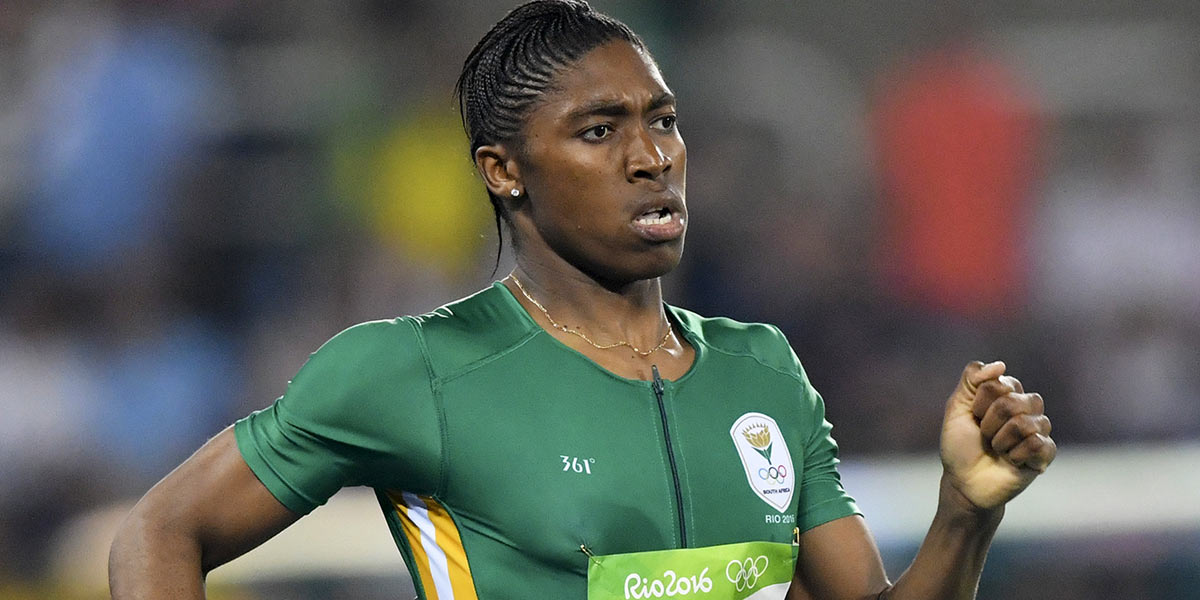IAAF rules aren’t just about Caster, they’re about all women’s achievements

Shutterstock.com
Comparing how Lance Armstrong and Caster Semenya were treated by the sporting world shows that women’s achievements are questioned in ways that men’s rarely are, writes Angie Gallagher.
In a recent article giving her take on the IAAF’s decision to force Caster Semenya and other female athletes with differences in sexual development (DSD) to regulate their testosterone levels, Kenyan writer Kari’s lead-in really says it all:
“A week or two from now, perhaps a month from now, Caster Semenya’s name will fall from our lips. The aggregated outrage over the IAAF’s discriminatory ruling collecting at our feet to be stepped over as we move onto the next outcry.”
Because the fact of the matter is that we are certainly living in a time where issues are fleeting, even if they’re serious. In the LGBTI media, for instance, you’d be hard pressed to find recent articles about Brazilian president Jair Bolsonaro’s homophobia. It isn’t that Bolsonaro doesn’t still hold homophobic views; it’s just that the Brazilian leader is now in the news for something entirely different – his dropping approval ratings.
Indeed, news is fleeting, and although the furore over Caster Semenya has quietened down, for now, it is sure to reignite when she takes part in a Paris athletics meet in June – even though she will not be taking part in the events requiring testosterone regulation, as stipulated by the IAAF.
When the starting pistol cracks to signal the beginning of the 2000-metre event that Caster Semenya will run in on 11 June, and again when she races in the 3000-metre event at the Prefontaine Classic in California on 30 June, we’ll do well to remember that Caster’s absence from the 800-metre event, the jewel in her athletics crown, so to speak (of which the world record, set by Jarmila Kratochvílová in 1983, still stands, despite the “threat” of an athlete who holds an “unfair advantage” over her competitors taking part in it on the global stage since 2008) ultimately boils down to discrimination, plain and simple.
Kari writes that Caster is too fast, too black and too African. I’d like to throw something else in the hat that may seem counterintuitive, given the discourse around Caster’s gender – Caster is also too female, despite the International Association of Athletics Federations’ long-standing fracas to prove otherwise. They’ve been at this since 2009, when Caster was first subjected to sex verification tests to prove she was female. At the time, Caster was 18 years old.
Compare this to the Lance Armstrong doping case, seeing as Caster’s so-called advantage on the track is often cited as akin to doping by her opponents. Armstrong was a professional cyclist from 1992, and his career was marred by doping allegations for a large part of it. Despite years of speculation on the matter – ironically, talk about performance-enhancing drugs also started in all earnest after Armstrong won his first Tour de France in 1999 – doping allegations against Armstrong were only initiated in 2006, and Armstrong himself would only admit to doping in 2013.
This man, who indeed enhanced his performance and natural ability with drugs, was allowed to compete and hailed as one of the sport’s greatest for years – all the while knowingly bypassing the rules. Had investigations found that Armstrong’s achievements were a result of an innate natural ability, combined with years of training and hard work, the cabal would have been huge. But the point is this: despite years of speculation and adoration alike, actual investigation into doping would only commence well after the whistle had been blown. Armstrong was 35, at the height of his career, and had won his seventh consecutive Tour de France title just a year before.
See, we don’t question the achievements of men. We accept that they are natural athletes and that their physical prowess is the result of a lifetime of working toward their goal of being the best. We watch them win again and again, and never question the physical advantages they have over their competitors. But when an 18-year-old female athlete from the African continent starts winning internationally, the powers that be immediately try to put a spoke in her wheel. And like angry pit bulls, they don’t let off for a whole decade.
In an article for Forbes, Professor of Private Law at the University of Pretoria, Steve Cornelius, writes: “The way in which the IAAF has gone about dealing with Semenya raises serious legal and ethical concerns. And Semenya isn’t the only athlete involved. This is an issue that goes beyond just the difference of sex development. It goes to the fundamental root of human dignity, of privacy of every athlete who participates at the World Championships.
“Even the IAAF’s constitution, in article 3, gives a commitment to human rights with ethical values, while the Olympic Charter is against any form of discrimination and is for the promotion of women, equality of men and women, sport for all.
These have all been laid bare as empty promises.”
As far as it pertains to the IAAF policy: this decision isn’t just about Caster’s gender. Perhaps these rules were made largely because of her gender.
Update: Hearteningly, the Swiss supreme federal court on 3 June ordered the IAAF to suspend its testosterone regulations for Caster with immediate effect, pending her appeal against the athletics’ governing body’s latest decision. This means that Caster will be allowed to compete in the events she excels in without medication until at least 25 June this year.
Leave a Reply